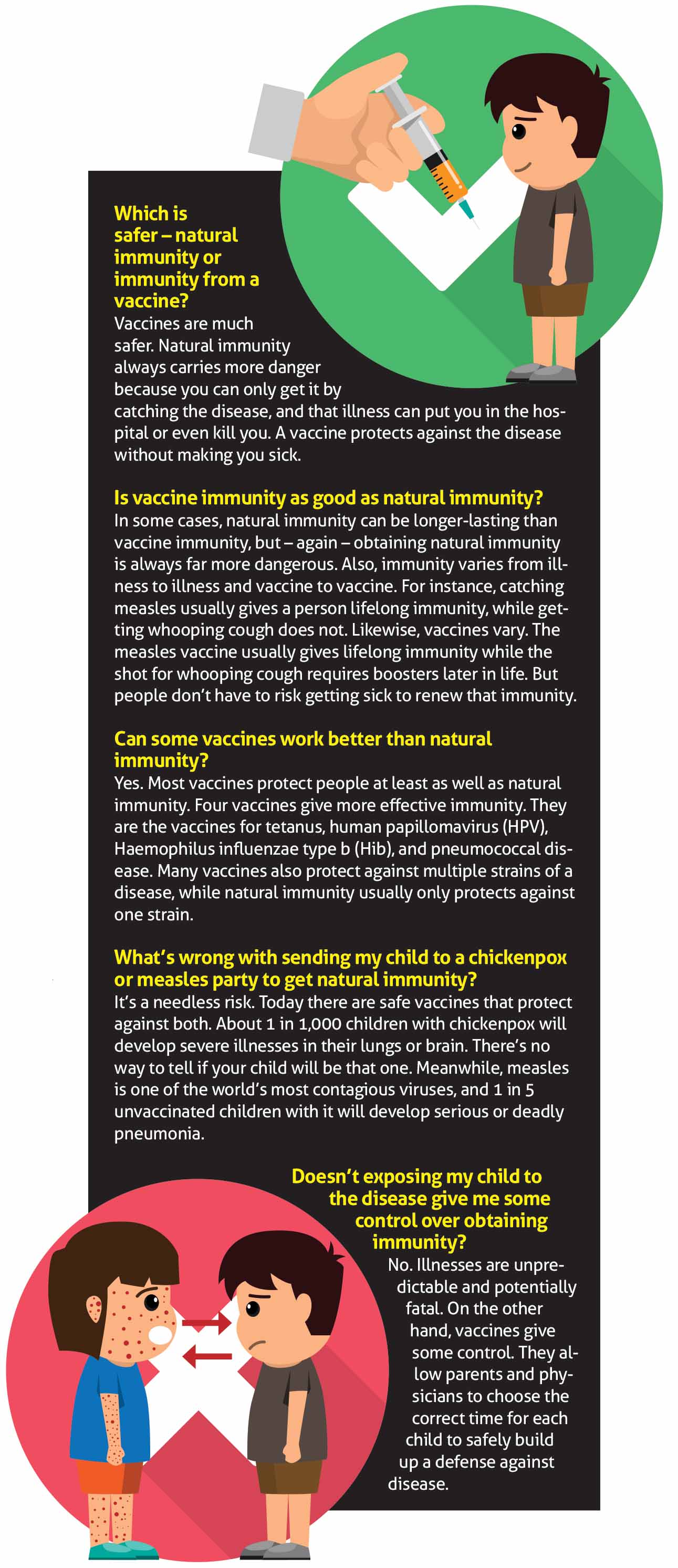Vaccines are all about reducing the risk of getting a disease; anti-vaccine arguments are designed to downplay how risky those diseases can be.
“One of the tactics used by the anti-vaccine lobby is to dismiss how terrible these pathogens are,” said Peter Hotez, MD, dean of the National School of Tropical Medicine at Baylor College of Medicine in Houston and co-director of the Texas Children’s Hospital Center for Vaccine Development.
One persistent anti-vaccine argument goes like this: Getting a disease gives a person stronger or longer-lasting “natural” immunity to that illness than taking the vaccine.
It is true that many illnesses confer future immunity to those who get them. But to get that immunity, patients first have to survive pathogens that can permanently destroy their health or end their lives, Dr. Hotez says.
On the other hand, when enough people are vaccinated, he says, lethal diseases cannot spread and reach people who might be vulnerable – a phenomenon called community immunity.
The quest to obtain natural immunity can cause parents to endanger their children unnecessarily. That is seen today in the persistence of an old tradition – “chickenpox parties.”
Before the introduction of a chickenpox vaccine in 1995, many parents held these parties to expose their healthy children to the illness because getting it in adulthood is more likely to lead to serious pneumonia and death.
The vaccine ended any rationale for chickenpox parties, Dr. Hotez says. But parents still deliberately expose their children to chickenpox – as well as measles and other vaccine-preventable diseases – to obtain natural immunity.
The problem with chickenpox and measles is that there’s no telling who will end up with a mild case and who will die, Dr. Hotez says, wheras vaccines prevent most or all of those cases.

Tex Med. 2020;116(3):47
March 2020 Texas Medicine Contents
Texas Medicine Main Page
Last Updated On
April 09, 2020
Originally Published On
February 21, 2020